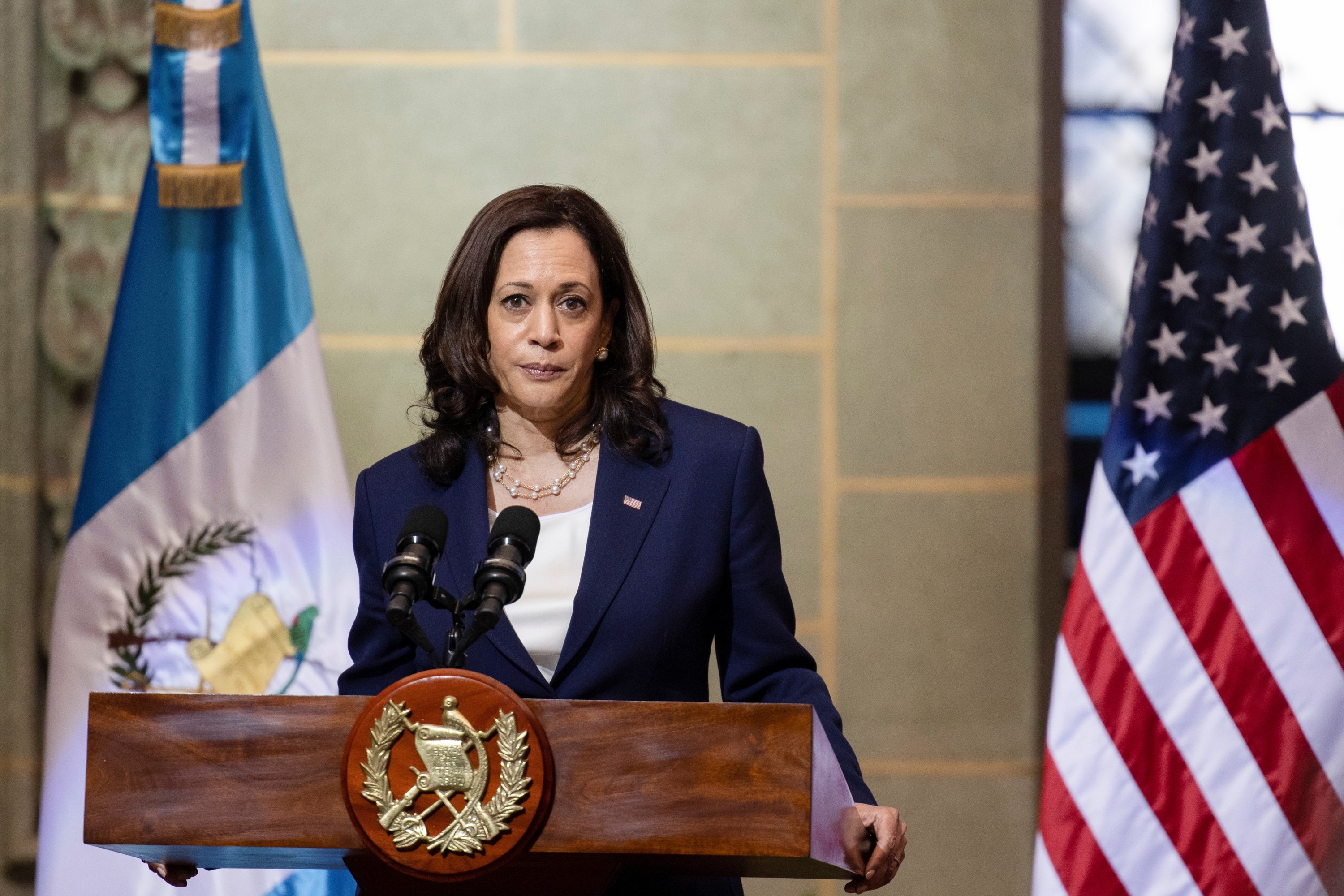© Turkuvaz Haberleşme ve Yayıncılık 2024
The White House needs better speechwriters; but then again if you don’t have sound policies to build speeches around, what is a poor speech writer supposed to do? In “Teach Yourself Speech Writing in Three Steps” courses, the first thing they teach you to ask is: What do you need to say?
I have sat through many lousy speeches in my time. The speech delivered by U.S. Vice President Kamala Harris last week has overshadowed all of these addresses, regardless of how terrible (and empty). I don’t know what would I do if I were one of her Guatemalan guests.

It was not only pointless (as the National Review described it) but shamelessly an about-face. When former U.S. President Donald Trump was building "Berlin Walls" on the U.S. borders on the south, the Democrats, especially "Queen of All Refugees" Harris kept using her biracial background and immigrant parents (from India and Jamaica) as part of her bid for the White House.
In her election night speech, she said her mother, who immigrated at the age of 19, perhaps didn't quite imagine Harris would be elected vice president, but she did believe deeply in American values.
Now, Harris was telling the mothers of prospective vice presidents not to come to the U.S. to enjoy the American values her mother deeply supported. Guatemalans aren't motivated to immigrate to enjoy these values Harris argued, but rather climate change is what is uprooting them.
Climate change was also the subject of the opening salvo of U.S. President Joe Biden’s European tour. Visiting the U.S. Air Force base in Suffolk last week in his first overseas trip as president, Biden delivered a speech to the American troops there.
He probably asked his military advisors and high-ranking commanders what he should talk about, to which they likely responded "the greatest foreign and domestics dangers to our country."
Rather than terrorism, China or any other emerging challenge on the international stage, Biden said their answer was climate change. So, Biden's first comment on his debut trip overseas as president was that global warming is "the greatest threat facing America.”
The commander in chief told his troops on European soil that “there’ll be significant population movements, fights over land, millions of people leaving places because they are literally sinking below the sea,” Biden explained.
Whether the U.S. armed forces are prepared to control the movements of populations movements or limit global warming was not made clear in his speech. The young women and men in uniform did not look too desperate to find out either.
There is a similar observable ambivalence about the U.S.' role in Europe. Biden promised to rebuild relations with the Europeans, but European allies do not seem interested in what Biden plans to do and how he's going to do it.
France's President Emmanuel Macron already declared NATO brain dead and said the U.S. can do nothing to resuscitate it. Germany has one condition when it comes to NATO: remaining a non-paying member of the bloc. Not even Trump could make Angela Merkel pull out her purse.
It seems that only Turkey is interested in what Biden would say. But Turkey's question is more general, as opposed to a simple definition of NATO's new role. Turkey wants to know whether the two countries, Turkey and the U.S., are friends or just acquaintances?
A friend is somebody you share a strong connection with whereas an acquaintance is a person you have a contextual connection with, from school, from work, from your NATO or friend's party, etc.
Among Congressional Democrats – who Biden was one of for years – there is a strong anti-Turkey sentiment and many Turks in return share feelings of anti-Americanism. (If you really want to know reasons, please park your inter-galactical vehicle park somewhere and see me afterward).
These strong feelings are pushing the two sides apart on certain strategic issues, like countering Russia, China and Iran, but still, there are tactical matters where the two countries can still align their policies.
Northeastern Syria, for instance, could be the first step in the two countries' cooperation. The U.S. side must stop insisting on dismembering Syria and creating a Kurdish autonomous region that will in no time fall into the hands of PKK terrorists and become a major reason for a regional war.
The U.S. and Turkey may start devising a military plan to weed out any entity that remotely resembles Daesh. This would prevent millions of dollars from being wasted while trying to create a regular army out of PKK extensions to do the job.
Additionally, the U.S. cannot punish an ally with sanctions if it was made to go and develop its own aerial defense system. Ankara and the U.S. military both know that Turkey purchasing the S-400 system from Russia does not technically constitute a security issue.
If Turkey is still a friend, its F-35s should be delivered immediately. If Turkey is still a friend, the U.S. should trust the evidentiary value of the truckload of papers submitted as part of the mutual legal assistance treaty for the extradition of Fetullah Gülen and the members of his cult, the Gülenist Terror Group (FETÖ).
If the U.S. still considers Turkey a friend, then it should start attempting to fix the damage it caused by labeling the suffering of the Armenians as “genocide” despite official U.S. military reports registered at that time showing otherwise.
In short, the U.S. must start proving that we are still friends.
Today, the brief opportunity the two presidents have in Brussels at the NATO summit may not be enough time to rebuild the alliance between the two countries but it should not be considered too short to be ruined by a badly written speech.
